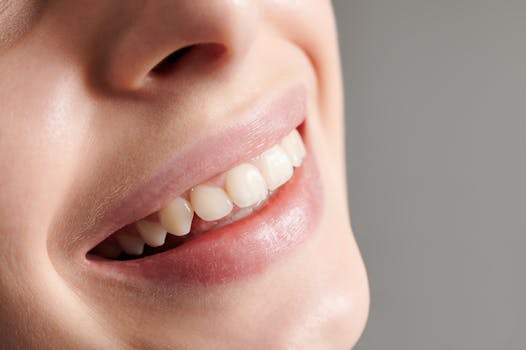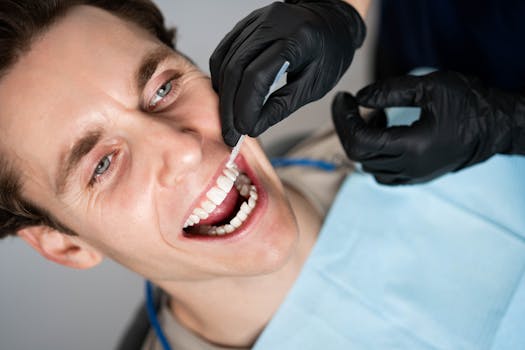How do you treat tooth decay?
Caries is a widespread problem that affects people of all ages. But how does tooth decay actually develop and, more importantly, how can it be treated effectively and prevented in the future? In this article, we look at these questions in detail and give you valuable tips on how to optimise your dental health.



What is tooth decay?
Dental caries, often known as tooth decay or simply tooth decay, is one of the most common dental diseases affecting people worldwide. The process begins when dental plaque - a sticky layer of food debris, bacteria and saliva - builds up on the tooth surface. The caries bacteria it contains metabolise sugary foods and drinks into acids that attack and demineralise the tooth enamel. This demineralisation leads to the loss of tooth substance and can spread further into the dentin and up to the tooth nerve (pulp). Advanced caries can cause considerable toothache, lead to infections and, in the worst case, result in the loss of the affected tooth.
Causes of tooth decay
The primary cause of tooth decay is inadequate oral hygiene. Regular tooth brushing, the use of dental floss and mouth rinses are crucial to prevent plaque build-up and thus the formation of caries. Dietary factors also play a role: frequent consumption of sugar and starchy foods promotes acid production in the mouth, which attacks tooth enamel and favours the formation of tartar. These circumstances create ideal conditions for caries to develop.
Symptoms and early detection
In the early stages, caries often causes no noticeable symptoms, which is why incipient caries often remains undetected until it is more advanced. Regular examinations in the ALPINE WHITE Studio and professional dental cleanings are therefore essential to recognise early signs such as initial caries. This also ensures healthy gums. Typical symptoms of advanced caries are discolouration and dark spots on the teeth, especially in the spaces between the teeth, on the necks of the teeth and on the chewing surfaces of the molars. Visible holes in the teeth, sensitivity to temperature changes or sweets and toothache are clear warning signs that require immediate treatment.


For a healthy mouth and beautiful teeth, regular professional teeth cleaning is essential. Our specialists detect early signs of caries and prevent them.
- Personalised dental hygiene
- Gum check & caries control
- Painless cleaning with AIRFLOW
Treatment options
The treatment of caries depends on the degree of the disease. In the early stages, further spread can often be prevented by applying fluoride varnish or sealing the affected areas. Toothpaste containing fluoride also helps to strengthen the enamel and prevent tooth decay. The whitening toothpastes from ALPINE WHITE are perfect for this, as our toothpastes contain fluoride.
If the damage has reached deeper layers such as the dentine, a filling is usually required. The affected tooth is cleaned and the decayed material is removed. The tooth is then rebuilt with a filling material such as amalgam, composite or inlays.
In the case of deep caries affecting the pulp, root canal treatment may be necessary. During root canal treatment, the infected or inflamed pulp is removed and the root canal is carefully cleaned and sealed. In severe cases, a tooth replacement may also be necessary.
Early detection and treatment of caries is crucial to avoid serious tooth damage or dental fillings and crowns. Regular visits to the ALPINE WHITE Studio, good dental care at home and a low-sugar diet are the best measures to prevent tooth decay.
Caries repair and caries risk analysis at ALPINE WHITE
ALPINE WHITE offers innovative solutions for the treatment and analysis of caries to ensure optimal dental health.
Caries Repair
With Caries Repair, ALPINE WHITE offers an advanced treatment method for repairing damaged enamel and restoring tooth structure. This method is specifically designed to effectively treat early caries before more extensive dental procedures become necessary. The treatment utilises state-of-the-art technologies that have been specially developed to restore the natural hardness and functionality of the tooth while improving its aesthetic appearance. This approach is not only gentle, but also particularly sustainable, as it strengthens the tooth structure and protects it from further decay.
Caries risk analysis
The caries risk analysis is a preventive approach that aims to assess the individual caries risk and provide personalised recommendations for prevention. Through a detailed saliva test, ALPINE WHITE can provide accurate information about the areas of your mouth that are most at risk. This enables you to take targeted preventive measures and adapt your oral hygiene accordingly. The caries analysis is a valuable tool to promote healthy teeth in the long term and avoid extensive and costly dental treatment.
Prevention: the key to avoiding tooth decay
The best way to avoid tooth decay and visits to the dentist's surgery is thorough dental care. Brushing your teeth twice a day with a fluoride toothpaste and using dental floss and mouthwash daily are essential to reduce plaque and the development of tooth decay. It is also particularly important to have regular check-ups with our dental experts at the ALPINE WHITE Studio so that any problems can be recognised and treated at an early stage.
A balanced diet that is low in sugary and starchy snacks also contributes to dental health. Regular consumption of fresh fruit, vegetables and water promotes the flow of saliva, which supports the natural cleaning of teeth and interdental spaces and regulates the acid balance in the mouth.
Conclusion
Tooth decay is a preventable disease if you stick to the basics of good oral hygiene and schedule regular dental check-ups. With the right knowledge and tools, such as fluoride toothpaste, dental floss and regular professional teeth cleaning, you can keep your teeth healthy and minimise the risk of tooth decay and other dental diseases. Remember, the earlier tooth decay is recognised, the easier and less invasive it can be treated. Focus on prevention and ensure a healthy smile that lasts a lifetime!


